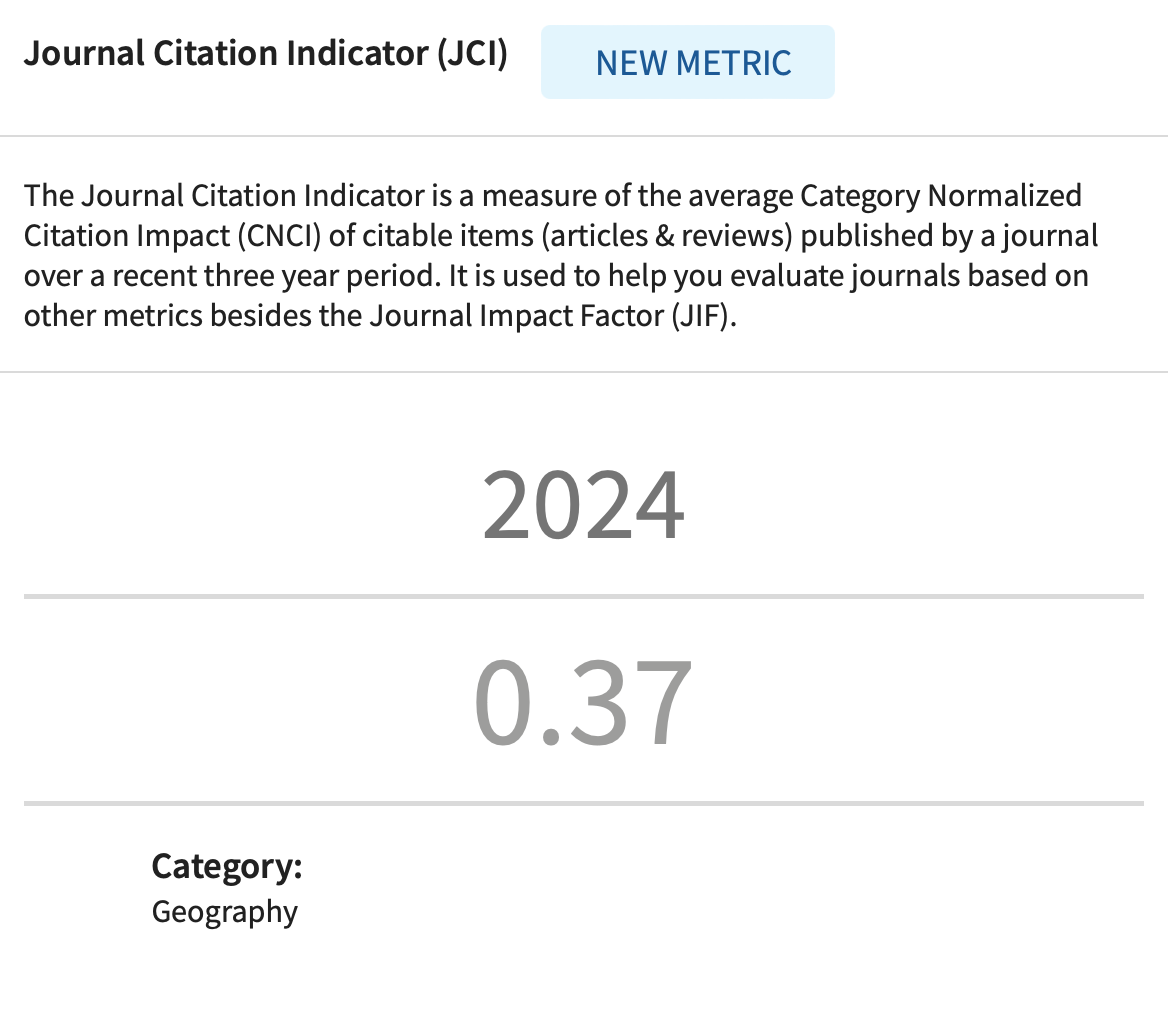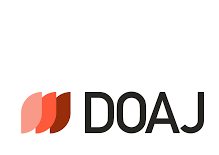REGIONAL GROWTH IN PORTUGAL: ASSESSING THE CONTRIBUTION OF EARNINGS AND EDUCATION INEQUALITY
DOI:
https://doi.org/10.2298/IJGI1502239SKeywords:
regional growth, Portugal, earnings inequality, education inequalityAbstract
Regional economic growth in Portugal has mainly been studied from the perspective of convergence with data ending by the early 2000’s. The country as a whole has stopped converging to the output levels of the richest European countries by this period and has also become one of the most unequal EU member-states in terms of income distribution in the meantime. It is thus important to analyze the growth performance at the regional level in a more recent period, 1995-2007, emphasizing regional disparities in inequality as explanatory factors. This study examines the relationship between inequality and regional growth in Portugal at NUTS III level exploring the explanatory power of earnings and education inequality measures computed with data from the Quadros de Pessoal database. The results point to a positive relationship between initial inequality and regional growth, stronger for education than for earnings inequality, but with earnings inequality measures revealing a higher explanatory power. Moreover, there is evidence that it is inequality at the top end of the distribution that is relevant to explain regional growth, a result that reinforces the higher propensities to save of the richer and the incentives mechanisms of transmission from inequality to growth. Additionally, the evidence on the existence of convergence among Portuguese NUTS III regions during the period under analysis is mixed. These findings are robust to the introduction of most additional control variables and the consideration of alternative measures of earnings and education inequality.
Article metrics
References
Aghion, P., Caroli, E., & García-Peñalosa, C. (1999). Inequality and economic growth: the perspective of the new growth theories. Journal of Economic Literature, 37(4), 1615-1660.
Andrade, J. S., Duarte, A., & Simões, M. (2014). Inequality and Growth in Portugal: a time series analysis. Revista Portuguesa de Estudos Regionais, 37.
Banerjee, A. V., & Duflo, E. (2003). Inequality and Growth: What Can the Data Say? Journal of Economic Growth, 8(3), 267-299.
Barro, R. J. (2000). Inequality and growth in a panel of countries. Journal of Economic Growth, 5(1), 87-120.
Barro, R. J., & Sala-i-Martin, X. (1991). Convergence across States and Regions. Brookings Papers on Economic Activity, 1, 107-182.
Barro, R. J., & Sala-i-Martin, X. (2004). Economic Growth (2nd Ed.). New York: MacGraw-Hill.
Braga, V. (2004). Regional growth and local convergence: Evidence for Portugal. ERSA Conference Papers nº 323.
Budria, S. (2007). Economic Inequality in Portugal: A Picture in the Beginnings of the 21st century. Centro de Estudos de Economia Aplicada do Atlântico Working Paper, 43.
Castelló-Climent, A., & Doménech, R. (2002). Human Capital Inequality and Economic Growth: Some New Evidence. The Economic Journal, 112, 187-200.
Dias, M. F., & Silva, R. (2004). Central Government Transfers and Regional Convergence in Portugal. ERSA Conference Papers nº 443.
Dominicis, L. D., Florax, R. J. G. M., & De Groot, H. L. F. (2008). A meta-analysis on the relationship between income inequality and economic growth. Scottish Journal of Political Economy, 55(5), 654–682.
EC. (2008). The Social Situation in the European Union 2007 Brussels, [report 2]: D-G for Employment, Social Affairs and Equal Opportunities - Unit E.1 and Eurostat - Unit F.3 (pp. 199). Brussels: European Comission.
EC. (2009). The Social Situation in the European Union 2008. European Commission, Directorate-General for Employment, Social Affairs and Equal Opportunities.
EC. (2010). The Social Situation in the European Union 2009. European Commission, Directorate-General for Employment, Social Affairs and Equal Opportunities.
Ezcurra, R. (2007). Is Income Inequality Harmful for Regional Growth? Evidence from the European Union. Urban Studies, 44(10), 1953–1971.
Forbes, K. (2000). A reassessment of the relationship between inequality and growth. American Economic Review, 90(4), 869-887.
Galor, O., & Moav, O. (2004). From Physical to Human Capital Accumulation: Inequality and the Process of Development. Review of Economic Studies, 71(4), 1001-1026.
García-Peñalosa, C. (2008). Inequality and Growth: Goal Conflict or Necessary Prerequisite? Proceedings of OeNB Workshops, Dimensions of Inequality in the EU, 16.
Hoeller, P., Joumard, I., Pisu, M., & Bloch, D. (2012). Less Income Inequality and More Growth –Are They Compatible? Part 1. Mapping Income Inequality Across the OECD. OECD Economics Department Working Paper, No. 924.
Perotti, R. (1996). Democracy, income distribution and growth: What the data say. Journal of Economic Growth, 1, 149-187.
Rodrigues, C. F. (2007). Distribuição do Rendimento, Desigualdade e Pobreza: Portugal nos Anos 90. Coimbra: Almedina.
Rodríguez-Pose, A., & Tselios, V. (2010). Inequalities in income and education and regional economic growth in western Europe. Annals of Regional Science, 44, 349-375.
Sala-i-Martin, X. (1997). I just run two million regressions. American Economic Review, 87(2), 178-183.
Sianesi, B., & van Reenen, J. (2003). The Returns to Education: Macroeconomics. Journal of Economic Surveys, 17(2), 57-200.
Simões, M. C. N., Andrade, J. A. S., & Duarte, A. P. S. (2013). A Regional Perspective on Inequality and Growth in Portugal Using Panel Cointegration Analysis. International Economics and Economic Policy, 10(3), 427-445.
Soukiazis, E., & Antunes, M. (2006). Two Speed Regional Convergence In Portugal And the Importance of Structural Funds on Growth. Ekonomia, 9(2), 222-241.
Soukiazis, E., & Proença, S. (2008). Tourism as an alternative source of regional growth in Portugal: a panel data analysis at NUTS II and III levels. Portuguese Economic Journal, 7(1), 43-61.
Voitchovsky, S. (2005). Does the profile of income inequality matter for economic growth? Distinguishing between the effects of inequality in different parts of the income distribution. Journal of Economic Growth, 10, 273-296.
Downloads
Published
How to Cite
Issue
Section
License
Copyright (c) 2015 Geographical Institute “Jovan Cvijić” SASA (Serbian Academy of Sciences and Arts)

This work is licensed under a Creative Commons Attribution-NonCommercial-NoDerivatives 4.0 International License.











